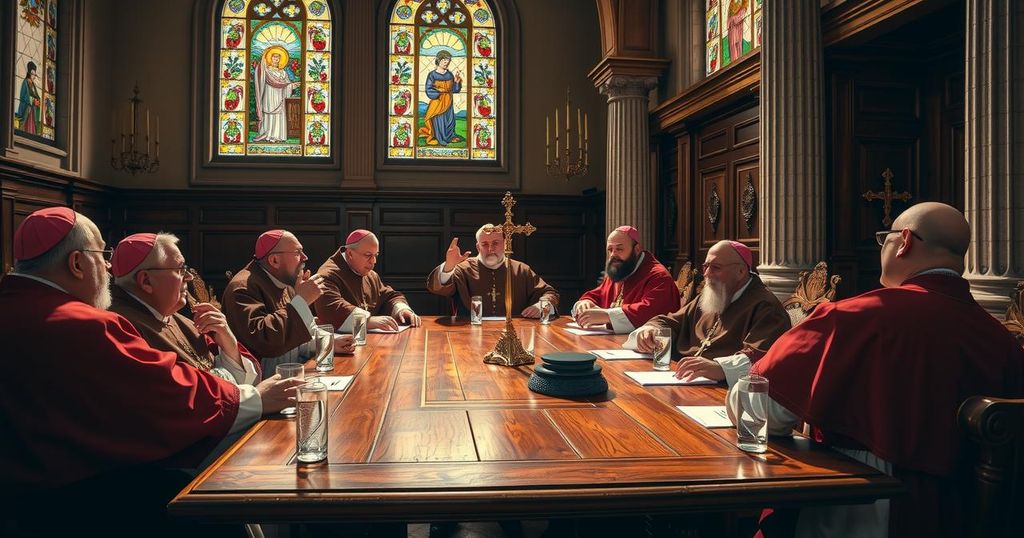DR Congo Bishops’ Official Summoned After Warning of Discrimination Against Swahili Speakers

Monsignor Donatien Nshole of the DR Congo Bishops’ Conference was summoned by the government after warning about discrimination against Swahili speakers due to recent unrest caused by M23 rebels. He discussed the situation with the Interior Minister, who downplayed the concerns as isolated incidents but requested evidence. The Bishops’ Conference urged governmental protection of citizens while some view the summons as intimidation. Ongoing conflicts have escalated in North Kivu, highlighting the need for peace and protection.
Monsignor Donatien Nshole, the secretary general of the Bishops’ Conference of the Democratic Republic of the Congo (DR Congo), was summoned by the government due to his warnings about discrimination against Swahili speakers after the M23 rebels captured Bukavu. During his questioning on March 6 at the Ministry of the Interior, he discussed recent events and shared critical information regarding the situation in the country with Interior Minister Jacquemain Shabani.
The Bishops’ Conference, known as CENCO, issued a statement on February 22 expressing concern over the stigmatization of Swahili speakers following Bukavu’s takeover and a controversial statement from President Félix Tshisekedi. At the Munich Security Conference, Tshisekedi had attributed the rise of M23 to his predecessor, Joseph Kabila, inflaming tensions that led to threats against Swahili speakers and Rwandophones on various platforms.
CENCO’s statement emphasized the ongoing suffering in eastern Congo and highlighted a surge in violence linked to linguistic identity beyond that region. The conference condemned the alleged crackdown on Swahili speakers and urged the government to protect its citizens and maintain social harmony.
In response to CENCO’s statement, Minister Shabani sought to clarify the allegations made by Msgr. Nshole, requesting specific evidence regarding the incidents mentioned. Following their meeting, Nshole remarked that everything had been clarified. The Minister characterized the reported incidents as isolated and indicated that the government had acted on most complaints, advising that future allegations should be reported to his office before public disclosure to prevent panic.
Political sociologist Prof. Tony Kanyinda opined that the government’s actions were a responsible response, considering CENCO’s stature. He noted that matters involving the church are managed through the Interior Ministry, not the Justice Ministry, as outlined in an agreement with the Holy See.
Conversely, some democratically engaged Congolese see the summons as a form of intimidation against Msgr. Nshole, who has advocated for the Social Pact for Peace and Coexistence. This initiative, which seeks dialogue between peace entities and M23, is viewed skeptically by the government. Recently, Christian leaders have called for an audience with President Tshisekedi to present their findings, with hopes for a timely response from the head of state, as mentioned by government spokesmen.
Amid ongoing tensions and conflict escalation in North Kivu province, clashes between the Congolese Armed Forces and M23 rebels have reportedly caused civilian casualties and mass displacements, illustrating the urgent need for peaceful resolution and protection of vulnerable communities.
The recent actions taken against Monsignor Nshole illustrate the complex dynamics between church leaders and the Congolese government amid rising tensions. While the government strives to manage allegations of discrimination and violence against specific linguistic groups, religious leaders emphasize the importance of dialogue and social cohesion. The involvement of civil society and church organizations underscores the need for collaborative efforts to achieve peace, highlighting ongoing struggles and the humanitarian impact of conflict in DR Congo.
Original Source: international.la-croix.com







